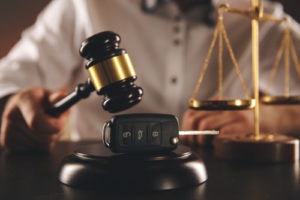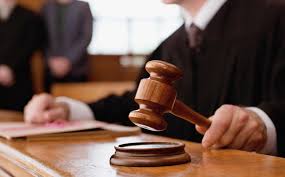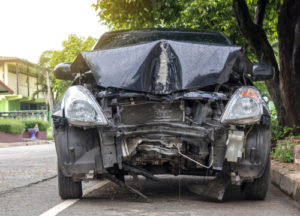
Causation is so hard to prove because there are often many factors that contribute (or could potentially contribute) to an accident. Finding and isolating the link between one particular act of negligence and your accident may, therefore, require thorough investigation.
A personal injury lawyer in Rutherfordton in your area can look into the causes of your accident and work hard to prove that you deserve damages. If they can prove causation, you can receive money for your medical bills, lost wages, and physical and mental suffering.
What Is Causation, and Why Is It Hard to Prove?
Causation is the third out of four elements of negligence that you must prove before you can receive money from the party who caused your injury. These four elements are defined as follows:
- Duty of care: The at-fault party was supposed to protect you in some way. For instance, drivers are supposed to obey traffic laws, while manufacturers must ensure the quality of their products.
- Breach of the duty of care: A breach of duty simply means that the at-fault party did not behave according to the law: the driver ran a red light, or the manufacturer used substandard quality assurance tests.
- Causation: Even if you prove that the at-fault party breached their duty of care, you must also establish a clear connection between their behavior and the resulting accident. This is the definition of causation.
- Damages: The accident needs to have led to some form of suffering, either physical, financial, or psychological. Damages can range from medical bills and loss of wages to permanent disabilities and disfigurement.
The Difficulties of Proving Causation
In rare cases, you might be able to draw a simple, straight line from a negligent action to your accident. More often, however, accidents prove to be very complex and involve many different “moving parts.” For instance:
- You took your car to the mechanic, who told you everything was fine. One week later, the brakes malfunction, and you crash your car. How can you prove that the mechanic should have noted the faulty brakes but failed to do so?
- Driver A is drunk and hits Driver B, whose airbag does not go off in time. Were Driver B’s injuries caused by Driver A or by the manufacturer of the faulty airbag?
- Your surgical procedure goes wrong, causing serious injuries. Is an individual medical professional (surgeon, nurse, anesthesiologist, etc.) responsible, or is the healthcare facility in general an unsafe place that failed to protect patients?
How to Prove Causation After an Accident
While causation can be difficult to establish, that does not mean you should give up without a fight. Here are some steps that you can take to make it easier for you to prove causation:
Hire a Personal Injury Attorney to Prove Your Case
Personal injury attorneys have proved causation before and are familiar with the challenges and pitfalls involved in doing so. Hiring a lawyer to help you can also ensure your rights are protected if the liable party:
- Denies that they were negligent
- Admits negligence but claims that the accident would have happened with or without their contribution
- Blames you for the accident
Collect Evidence of Causation
Sometimes, causation is so hard to prove because there is a lack of concrete evidence. You and your lawyer can work together to determine what kinds of materials may be most helpful in building a strong case. For instance, you can support your case with:
- Video footage (e.g., from a traffic cam) that shows the liable party behaving negligently
- Testimony from you and from witnesses who saw the accident happen in real time
- Accident reconstruction and medical experts who can provide informed opinions about how the accident likely occurred
- Any prior complaints or actions against the liable party that can help establish a pattern of behavior
- Police reports that show what the responding officer thinks about the accident
Confront Whoever Caused the Accident
Whether your injury was caused by a single, negligent person or a large corporation, your rights are the same: you can sue them for the damages they caused. Your law firm can speak to them on your behalf and:
- Show them the evidence of causation that you have collected
- Maintain communications via email, phone, teleconference, and/or in-person meetings
- Accept or reject settlement offers after informing you about these offers and advising you about whether they meet your needs
- Present your case in the courtroom in front of a judge and jury if and when it becomes necessary to seek a jury award instead of a pretrial settlement
Take Action to Prove Causation Right Away
Your efforts to prove causation may also run into difficulties because of the state-imposed time limits on personal injury/wrongful death legal actions. For example:
- You have three years to begin a personal injury case in both North and South Carolina, per N.C. Gen. Stat. §1-52 and S.C. Ann. §15-3-530, respectively.
- South Carolina also grants you three years to start a wrongful death case.
- In North Carolina, you only have two years to begin a wrongful death action, per N.C. Gen. Stat. § 1-53.
The sooner you hire an attorney, the sooner they can get to work on proving your case.
Personal Injury Lawyer Near Me 828.286.3866
Proving Causation in Wrongful Death Cases
If your loved one has already passed away because of someone else’s negligence, you still have the right to file a case against the at-fault party. Just like with a personal injury lawsuit, you would have to:
- Prove the four elements of negligence
- Collect enough evidence that the insurance company cannot deny the link between the at-fault party’s actions and your loved one’s accident
- Determine how much your (and your loved one’s) losses are worth and ask the insurer to cover that amount
Wrongful death lawyers are available to build and fight your case on your behalf if you do not want to do so on your own.
We Help Clients Prove Causation After an Accident
Though causation can be hard to prove, the team at Farmer & Morris Law, PLLC, has helped many other clients to do so. Call today for a free case evaluation. We can make your personal injury claim as strong as possible before approaching the at-fault party’s insurer for the compensation your family deserves.









